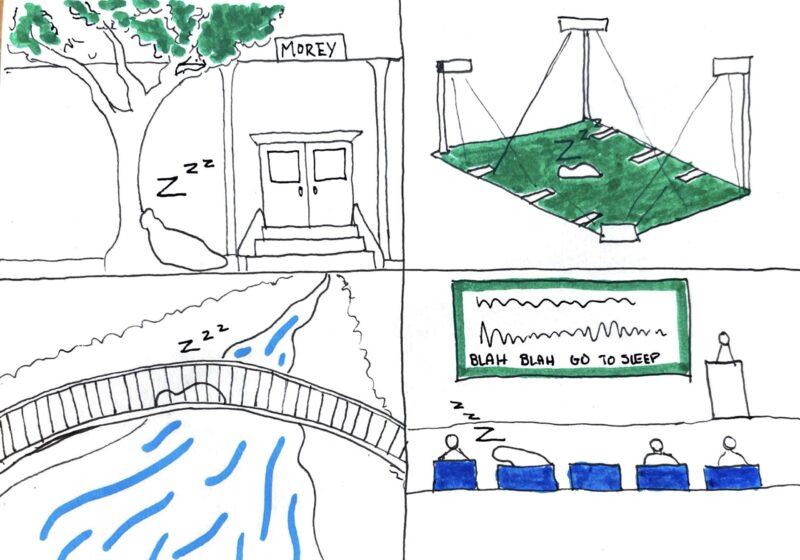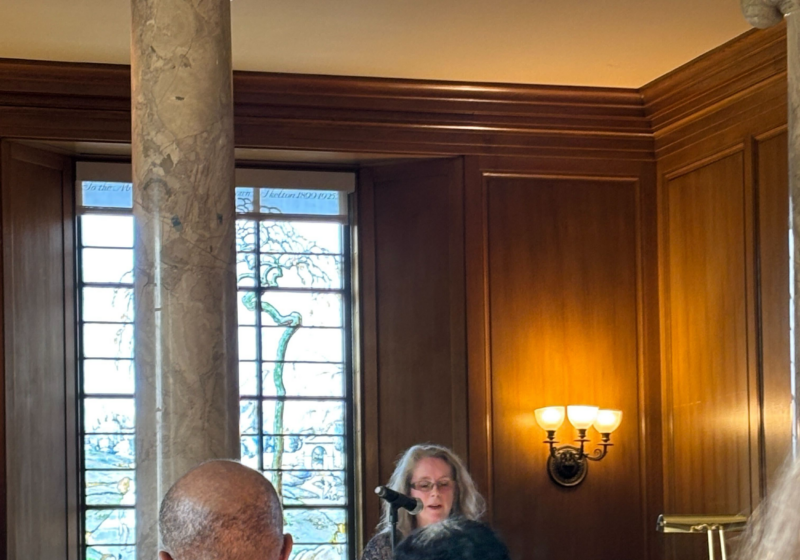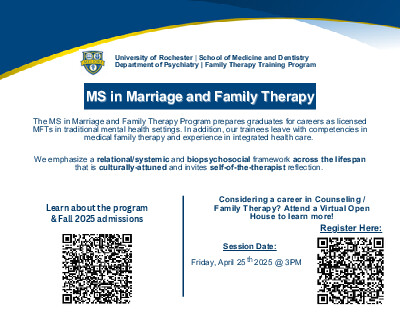While I certainly do appreciate the vast knowledge, wonderful people (both employees and students) and great coffee to be found there (shoutout to Connections) this is more about the physical beauty than the intellectual.
I am no architecture student, but the blend of Doric columns — borrowed from classical Greece — with the red brick of the mid-20th century makes it feel like a modern temple. The three doors mirror religious sites of an older age, and the owls that crown the tower tell us the goddess for whom this temple was built: wisdom.
Like towers of mosques, Rush Rhees has a call to prayer; the carillon bells echo from the river to the cemetery, calling us to our studies. And if the library is a temple, it must have a great sanctuary, a hall perhaps, where one can pray. In fact, there are two. Entering through the front doors, two marble staircases split and turn up above you, and you may follow them up to the Great Hall and the Periodical Reading Room.
The room’s soaring ceilings and gentle light emphasize their wood trim, making you feel both a homey comfort and a humble awe at your surroundings. Great tables stretch from wall to wall, and silence blankets the room. The dull scribbling of pencils is punctuated by the occasional screech of a chair across the floor or the clatter of a dropped notebook.
In a normal year, you might find yourself on the balcony, staring down the quad at the stained glass of the Interfaith Chapel. But even now, you may decide instead to pass through the back of the Great Hall and into the stacks. An elevator from the 1930s teleports you back in time and high into 500m, where narrow windows reveal the city lights. As the cool, crisp night air creeps in, it rushes between rows of books well older than the school.
Instead of heading back, you might climb yet another staircase, rising and turning once again, up to a seemingly hidden corner of the labyrinthian building. Here hides Robbins Library, home to a variety of beautiful, carefully preserved medieval texts. This nook has a reverence for knowledge. While the stacks store books with respect, Robbins Library honors them.
Perhaps, instead, you have a taste for the modern. Maybe the open floor, with big screens (that really just show ads but they look fun!) and white tables spread out to greet you. Here in Q&i, the long, wide tables are not for the breadth of assignments but the breadth of friendship that one may enjoy. Large groups usually gather here to work, relax, or eat, and even with COVID-19 restrictions, the bright lighting gives it a sense of energetic engagement rather than the sleepy intellectualism of the upper floors.
You might also travel to Gleason Library. Oft maligned for its questionable taste in carpets, it has massive walls of glass that portray a slightly different picture every minute. Sometimes, it’s thick snowflakes smothering the ground; others, it’s a gentle stream of rain or a beam of sun illuminating the students going about their daily routines below.
The library is a beautiful space, inside and out. It is far too easy to wax poetic about it. However, soon the vast majority of us will be at home, in our rooms, doing the same work we do now. I imagine I am not the only one for whom this will feel like a downgrade, as though my work and the love I have for my studies is somewhat muted without our great temple of wisdom. So I will look at the tower with longing eyes as I leave campus on Wednesday, and hope that I might return soon, and in better times.





